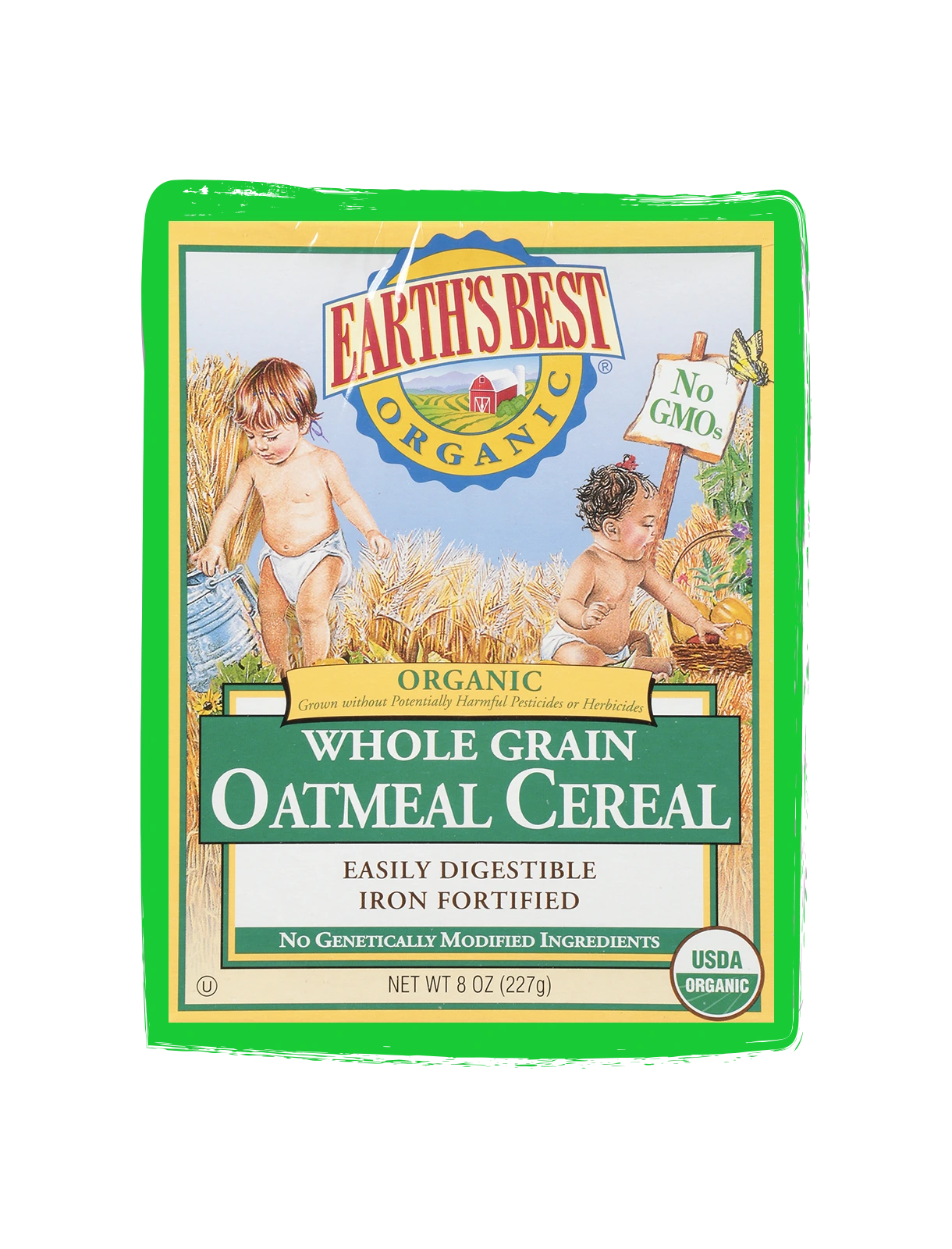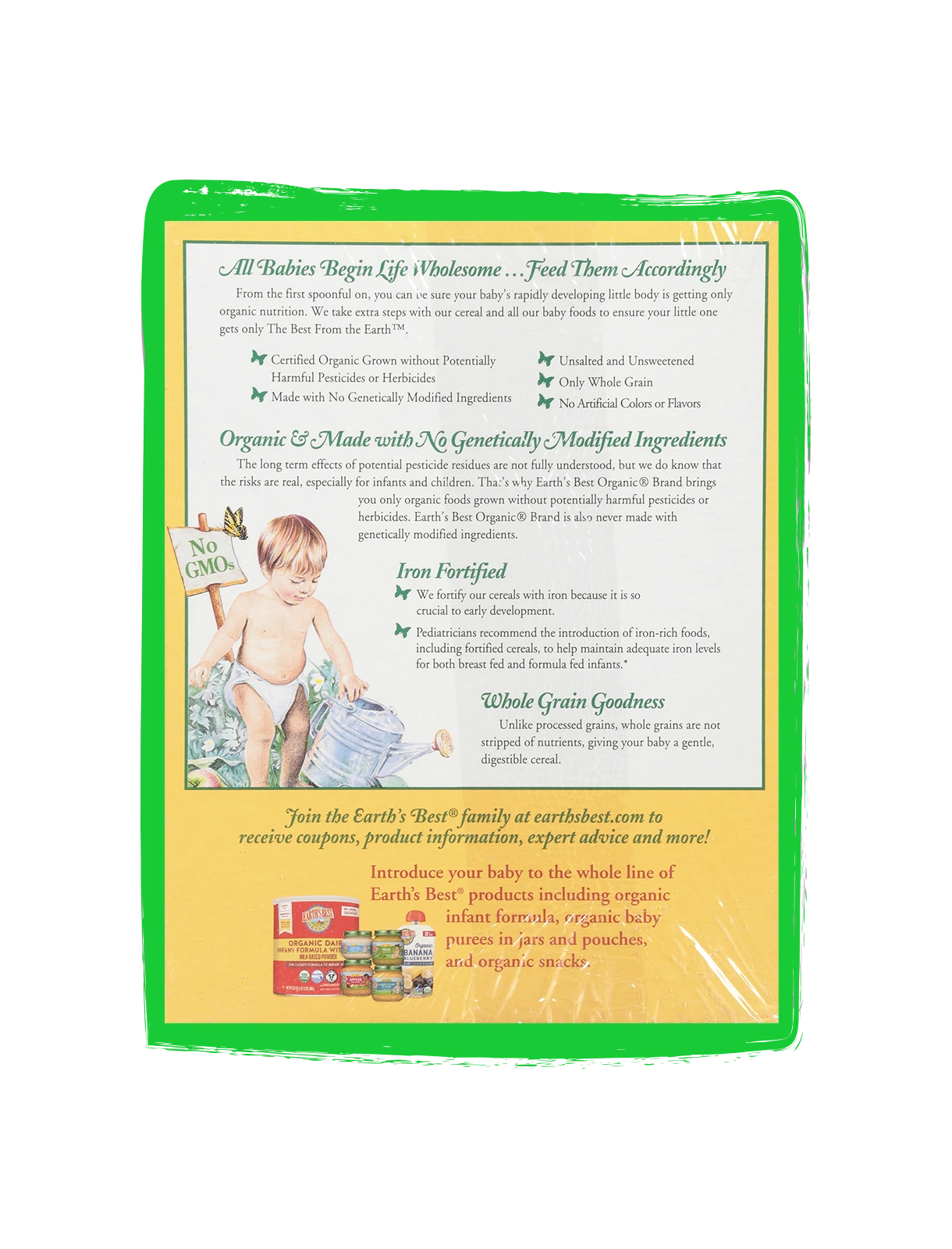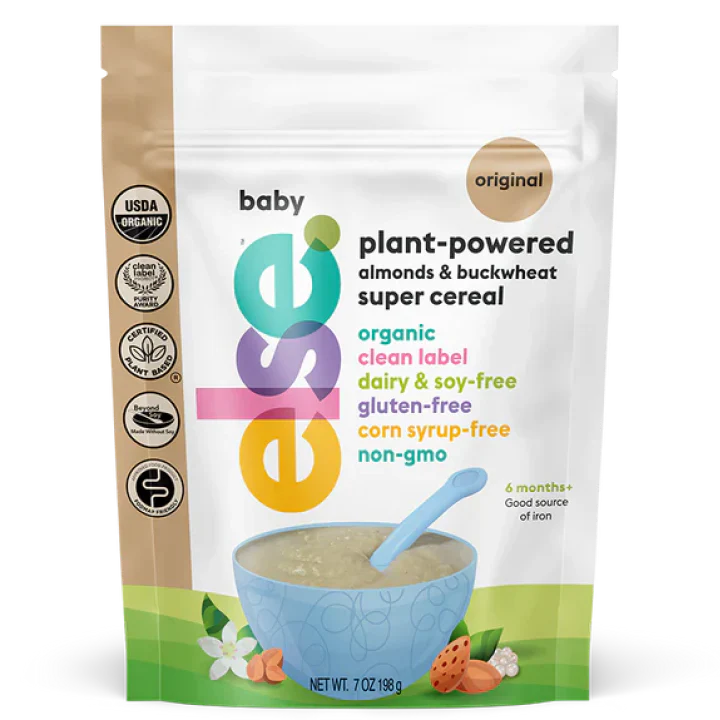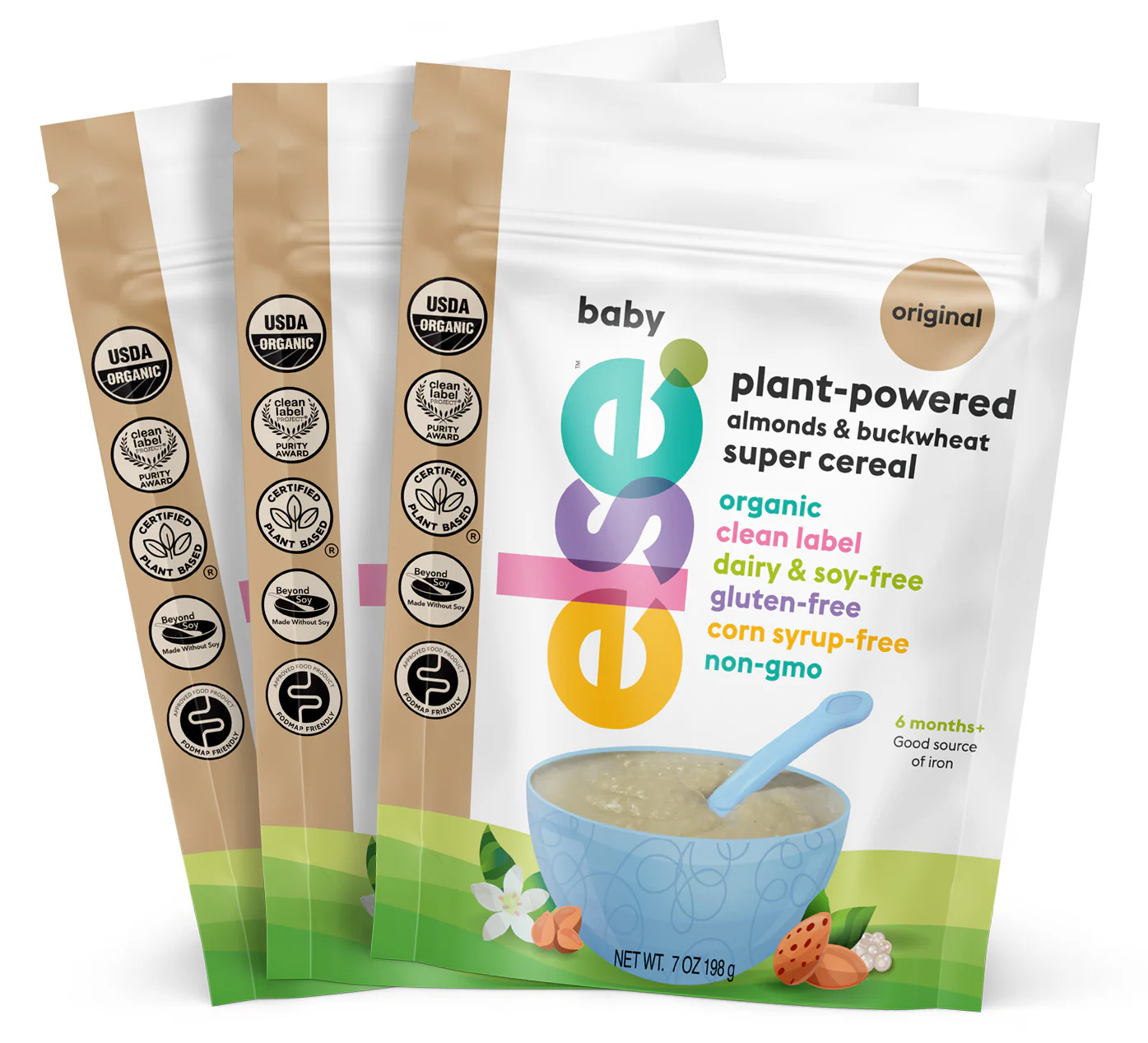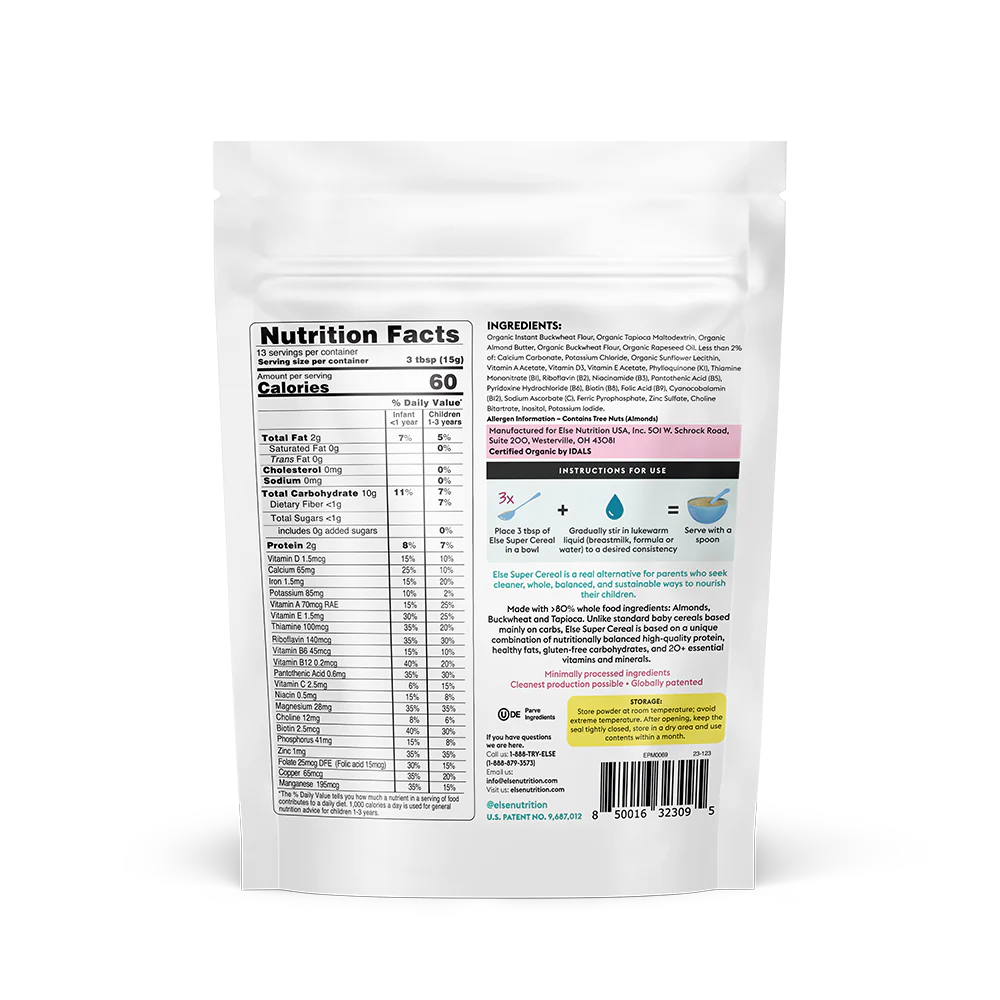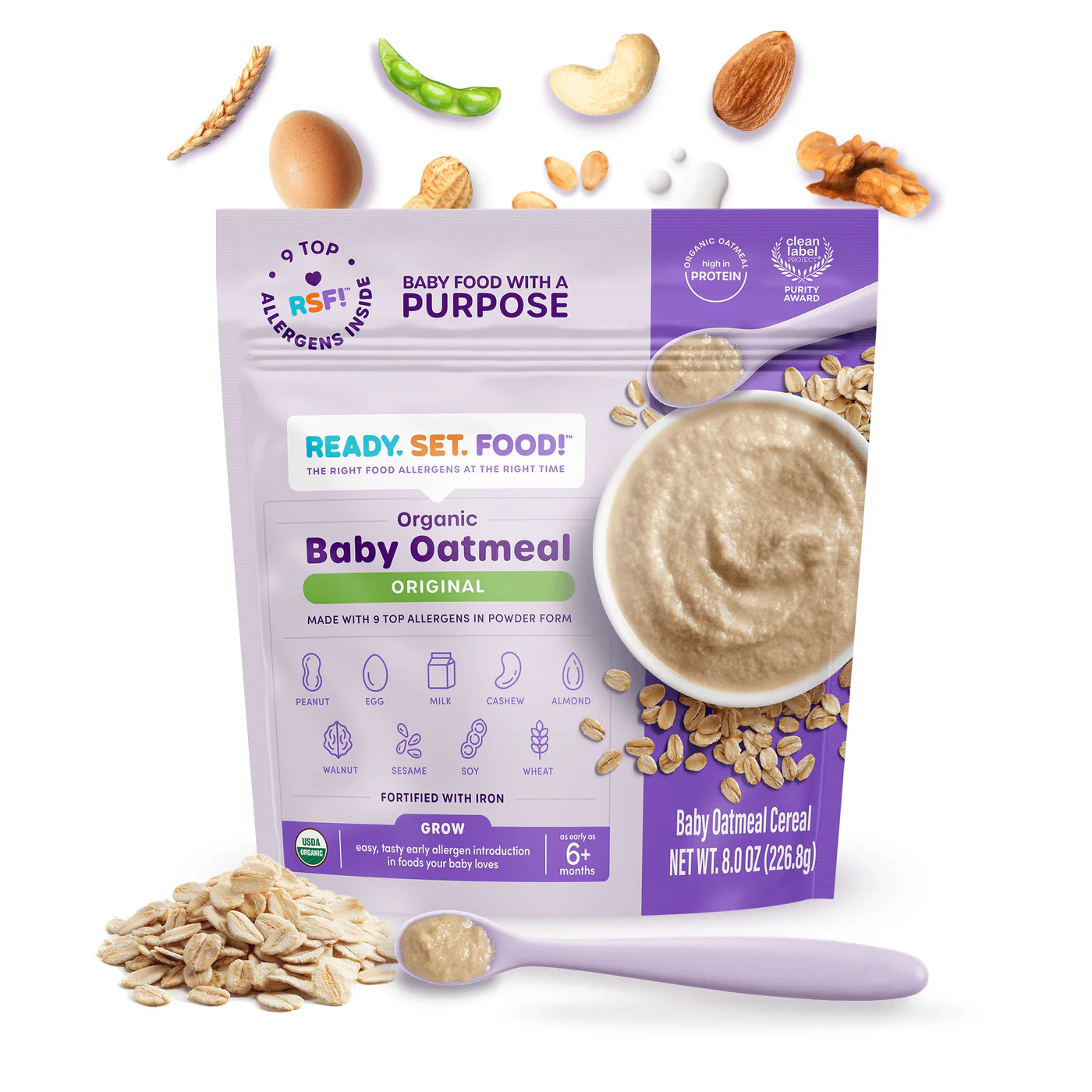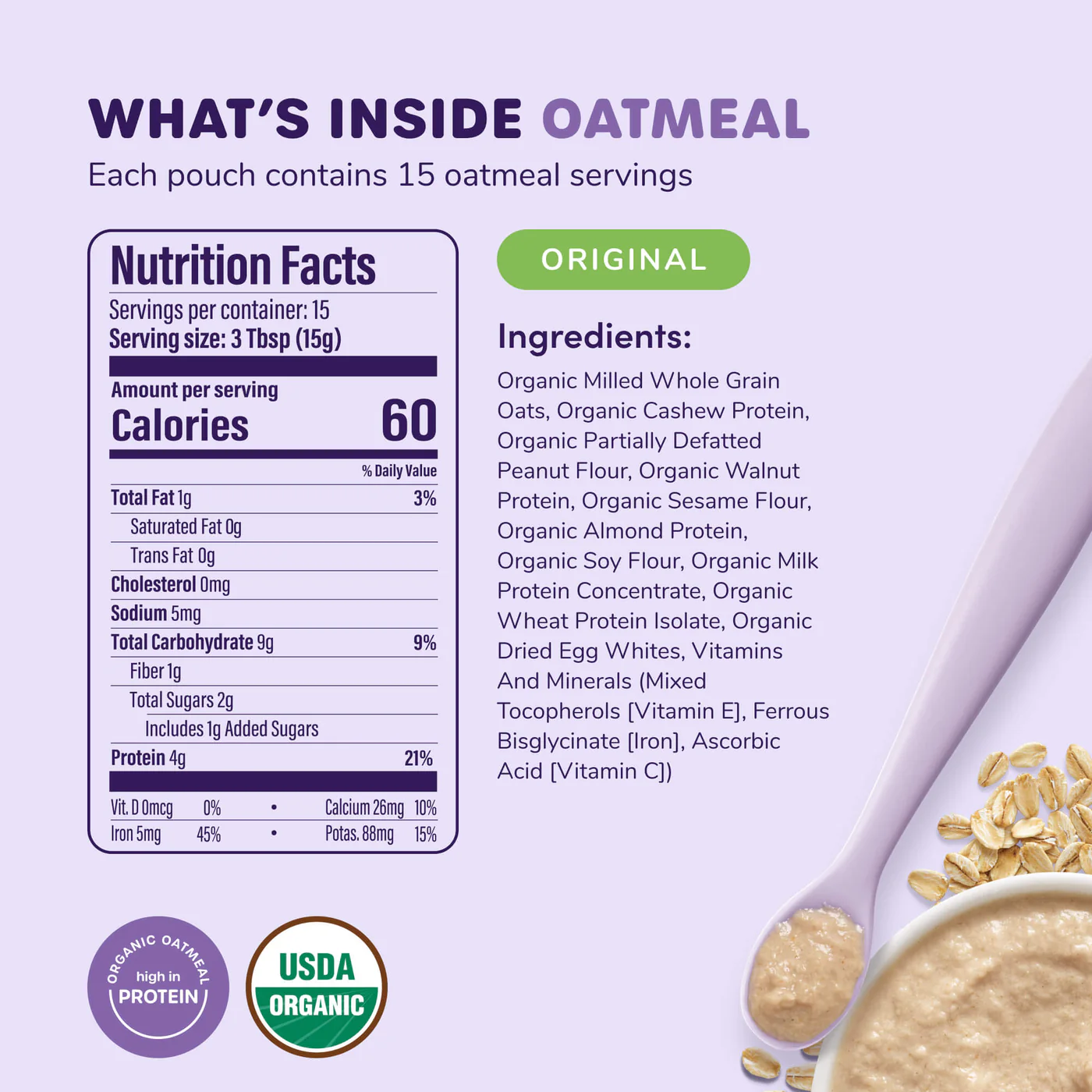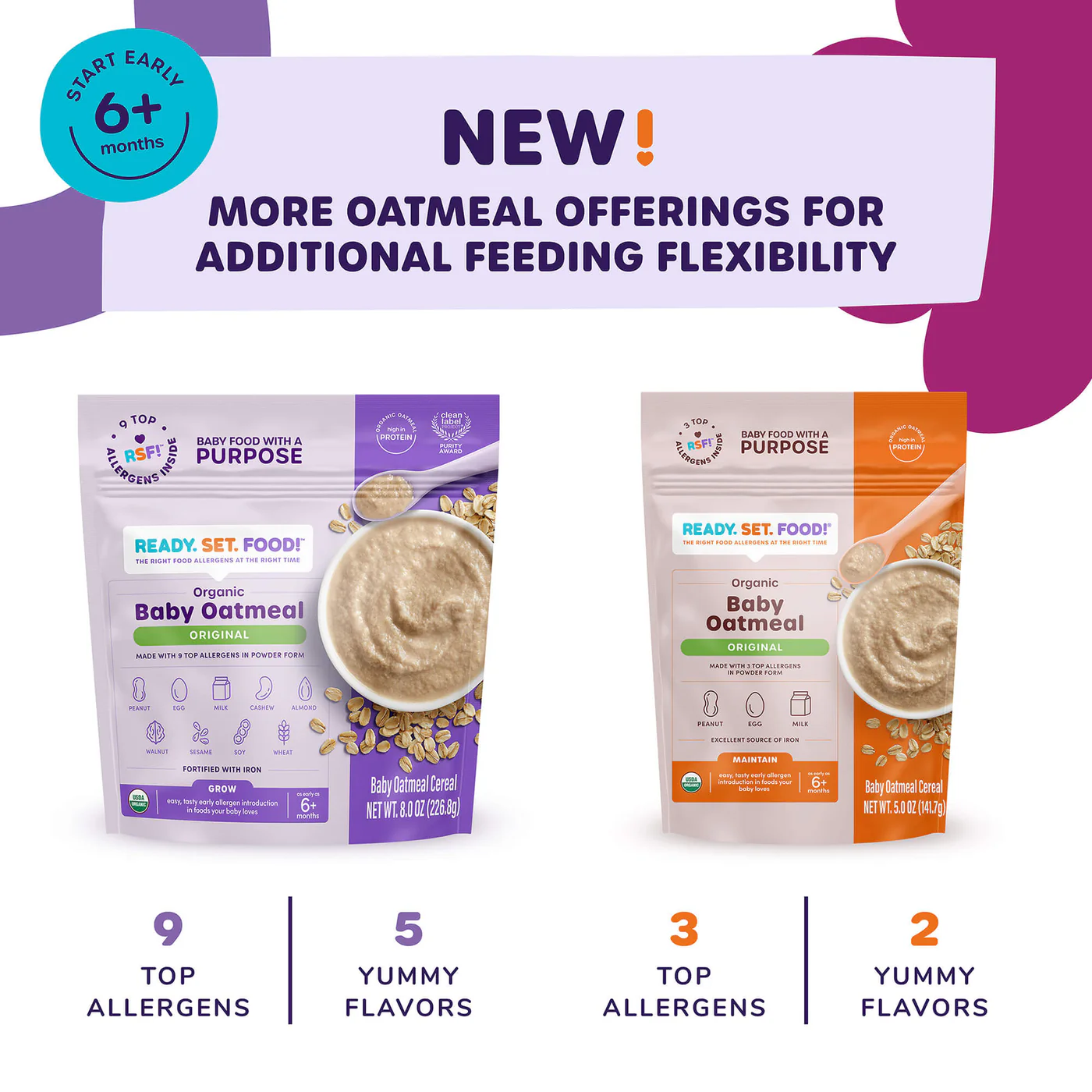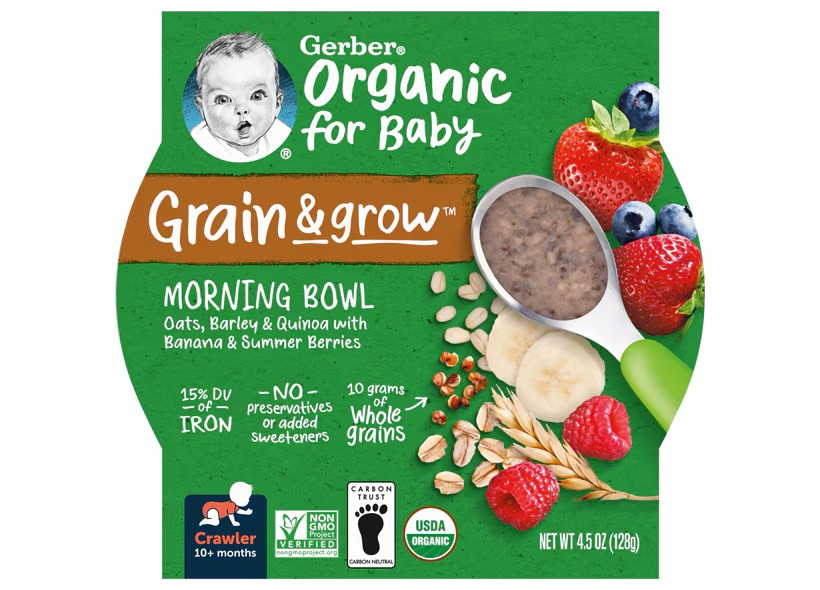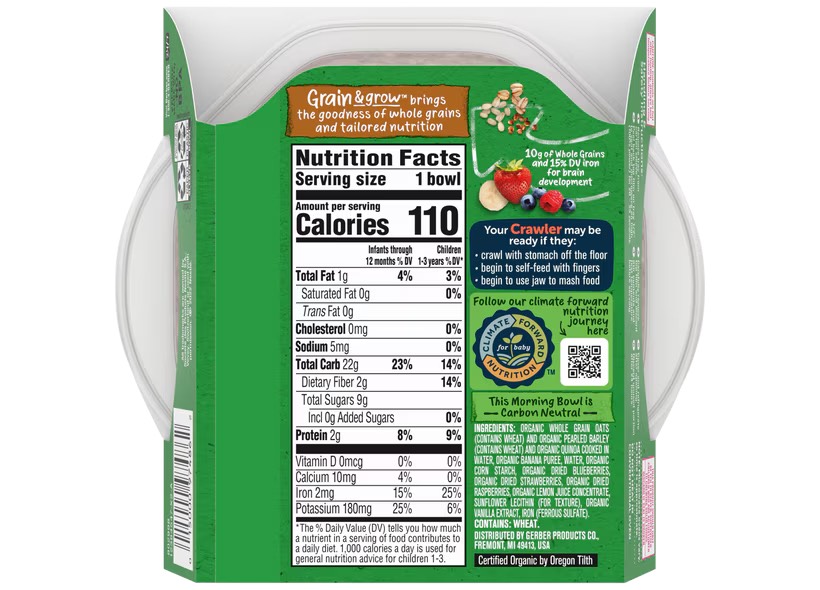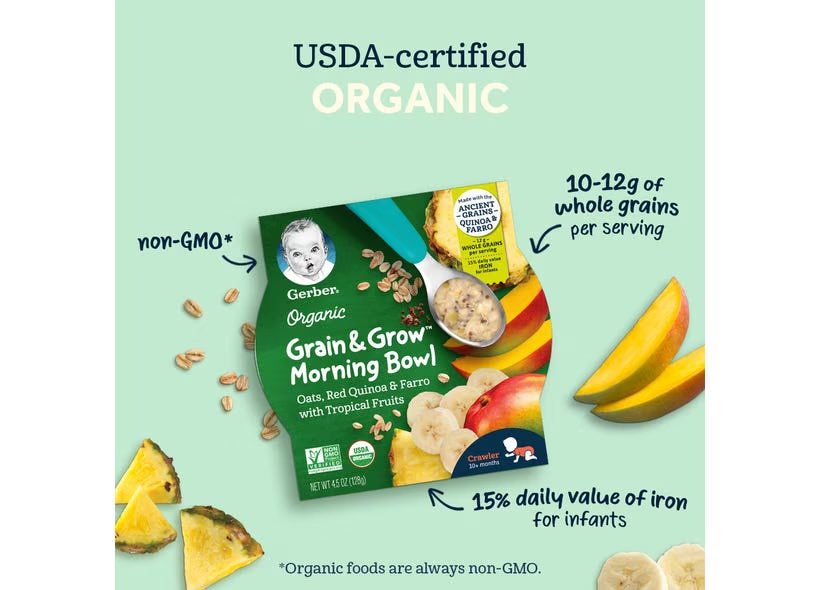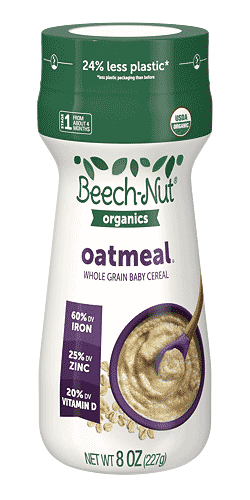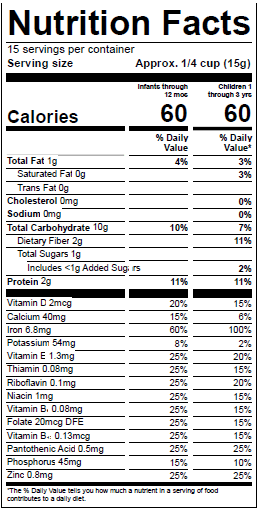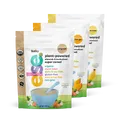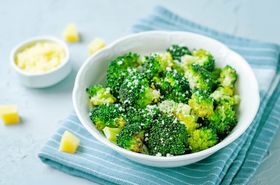5 Best Cereals for 11-Month-Old Babies: Fuel for Their First Year
Nourishing your toddler's growing needs: A guide to the best cereals for 11-month-olds
Published September 10, 2024

Your child is about to embark on an exciting new adventure—toddlerhood! As they transition from infancy, their nutritional needs evolve rapidly, and their diet plays a crucial role in supporting their incredible growth and development.
While many babies start exploring soft foods around 6 months, by 11 months, they're ready for a wider variety of tastes and textures. Cereals remain an excellent choice, offering a perfect combination of nutrition and convenience.
Whether your baby has been enjoying cereals for months or is just starting to explore them, we've curated a comprehensive list to help you choose the best options for your little one's growing needs.
» Give your 11-month-old the best start with organic baby cereal
Our Pick: Best Cereals for 11-Month-Old Babies
- Best overall cereal for 11-month-olds: Earth's Best Organic Whole Grain Oatmeal Baby Cereal
- Best organic cereal for 11-month-old babies: Else Nutrition Baby Super Cereal
- Best iron-fortified cereal for 11-month-old babies: Ready Set Food Organic Baby Oatmeal Cereal
- Best convenient cereal for 11-month-old babies: Organic Grain and Grow™ Morning Bowl
- Best hypoallergenic cereal for 11-month-old babies: Beech-Nut Organics Oatmeal Cereal
Different Types of Baby Cereals
There are several types of baby cereals available, each with its own nutritional profile:
- Rice Cereal: Often the first cereal introduced due to its low risk of causing allergies. Rice cereal contains essential vitamins and minerals like iron and B vitamins, making it a nutritious option.
- Oatmeal Cereal: A fiber-packed option that promotes digestive health. Its creamy texture makes it a comforting choice for babies. Additionally, it offers a good source of iron and protein.
- Barley Cereal: Provides a unique nutty flavor and is a good source of fiber and essential vitamins and minerals. It's important to note that it's unsuitable for those with a gluten allergy.
- Quinoa Cereal: A complete protein source, providing all essential amino acids. It's also rich in iron, fiber, and B vitamins, making it a nutrient-dense option.
- Mixed Grain Cereals: Offer a variety of nutrients by combining different grains. They provide a diverse taste experience and promote healthy digestion due to their fiber content.
» Understand the carbohydrate requirements of children
Benefits of Cereals for 11-Month-Olds
While your baby is likely exploring a variety of solid foods by 11 months, cereals play an essential role in their diet. Here's why:
- Nutrient Dense: Many baby cereals are fortified with essential nutrients, especially iron, which can be challenging to obtain from other sources.
- Texture Progression: Cereals offer a range of textures, from smooth to more textured varieties, helping babies transition to more complex foods.
- Versatility: Cereals can be mixed with breast milk, formula, or other pureed foods, making them an excellent vehicle for introducing new flavors.
- Convenience: Easy to prepare and portable, cereals are a convenient option for busy parents.
- Digestibility: Most baby cereals are easily digestible, making them gentle on developing digestive systems.
- Allergen Introduction: Some cereals contain common allergens like wheat, which can be safely introduced under medical guidance.
» Learn more about the micronutrient needs of kids
5 Best Cereals for 11-Month-Old Babies
How To Choose the Right Cereal
When selecting cereals for your 11-month-old, keep these factors in mind:
- Nutrient Content: Look for cereals fortified with iron and other essential nutrients.
- Ingredient List: Choose cereals with minimal additives and no added sugars.
- Texture: Opt for cereals that match your baby's eating skills and gradually introduce more texture.
- Allergen Considerations: If your family has a history of allergies, consult your pediatrician about introducing cereals containing potential allergens.
- Organic Options: Some parents prefer organic cereals to minimize pesticide exposure.
» Check out the signs your baby is ready for solids
Tips for Transitioning to More Solid Foods
Cereals can help ease the transition to a more varied diet. Here are some tips:
- Start Slow: Begin by mixing cereals with familiar purees, then slowly decrease the amount of puree.
- Experiment with Textures: Move from smooth cereals to more textured varieties as your baby's eating skills improve.
- Combine with Finger Foods: Offer cereal alongside soft finger foods to encourage self-feeding.
- Use as a Binding Agent: Mix cereals with mashed fruits or vegetables to create easy-to-handle shapes.
- Maintain Balance: Aim for a mix of cereals and other foods in your baby's diet. A general guideline is offering cereals once or twice daily alongside other meals.
- Be Patient: Every baby progresses at their own pace. Follow your baby's cues and consult your doctor if you have concerns.
» Explore these tips for a smooth transition from breastfeeding
Setting the Stage for Healthy Eating
As your little one approaches their first birthday, selecting the ideal cereal becomes an exciting part of their nutritional journey. Many of today's cereals—like the ones recommended here—offer a remarkable blend of convenience and health, providing busy parents with a nutritious solution.
Beyond their nutritional value, cereals are valuable tools for developing healthy eating habits. Their adaptability in texture and taste, especially when mixed with other foods, can help expand your kid's palate and potentially reduce pickiness. This sets the stage for a lifetime of diverse and enjoyable eating experiences.
» Nourish your 11-month-old with the goodness of organic baby cereal
The content and advice provided in this article are for informational purposes only and are not a substitute for medical diagnosis, treatment, or advice for specific medical conditions.
Always consult a pediatrician to understand your child's needs. The article expresses the views of the article's editor.





